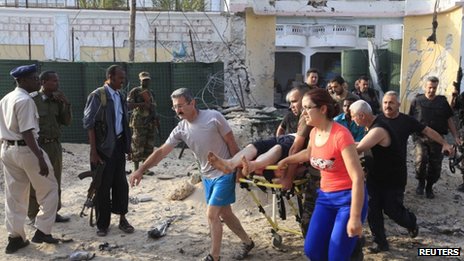By Kathryn Maureen Ryan
Impunity Watch Reporter, Middle East
BAGHDAD, Iraq – A recent wave of car bombs left at least 51 people dead and more than 200 wounded in mostly-Shia neighborhoods in cities across Iraq after 18 car bombs were detonated on Monday.

The majority of the attacks were carried out in Baghdad, the nation’s capital. Explosives were also detonated in the cities of Kut, Basra, Tikrit, Smawa and Muthanna Providence. The attacks targeted Shia communities and populated centers including a hospital, a bus station, a restaurant and several markets.
Prime Minister Nouri Kamal al-Maliki has tightened security in the nation’s capital in response to fears that more bombs have yet to be detonated. There were long lines at checkpoints in Baghdad as the security services searched vehicles for explosives.
While there has been no immediate claim of responsibility for Monday’s attacks, they have largely been seen as an attempt to widen the gap between Iraq’s Shia and Sunni communities. The Iraq Interior Ministry has placed blame on Al-Qaida and accused the terror organization of trying to widen the rift between Sunnis and Shiites. Following the attacks, the United Nations envoy to Iraq, Gyorgy Busztin called for an end to the senseless bloodshed because the violence could push Iraq back into a sectarian war, saying, “Iraq is bleeding from random violence, which sadly reached record heights during the holy month of Ramadan.”
According to the United Nations, more than 2,500 Iraqis have been killed in attacks since April of this year, the surge in violence marks the highest level of violence since U.S. military forces pulled out of Iraq in 2011.
The surge in violence since April followed a violent crackdown by Iraqi security forces on a Sunni protest camp which left more than 40 civilians dead. Sunnis across the country have protested the Shia led government of Prime Minister Nouri Kamal al-Maliki, claiming an unfair distribution of power and discrimination against the Sunni minority. Under the regime of Saddam Hussein, the country was under the control of the Sunni minority until the U.S. led invasion of Iraq in 2003. While the violence level in Iraq remains below the peak levels it reached during the height of the insurgency in 2006 and 2007 violence remains at its highest levels since 2008, bombings remain common and at least 700 people are believed to have been killed in July.
The recent surge in violence has largely been under-covered by American media outlets, likely as a result of the withdrawal of U.S. forces from the region. However, The U.S. Embassy in Baghdad condemned the attacks, saying that United States “stands firmly with Iraq in its fight against terrorism.”
For further information please see:
Al-Jazeera – Deadly Wave of Car Bombs Strikes Iraq – 29 July 2013
Associated Press – Wave of Car Bombings in Iraq Kills at Least 58 – 29 July 2013
BBC News – Iraq Violence: Wave of Beadly Car Bombs Targets Shias – 29 July 2013
The Guardian – Baghdad Car Bombs Kill Dozens – 29 July 2013


